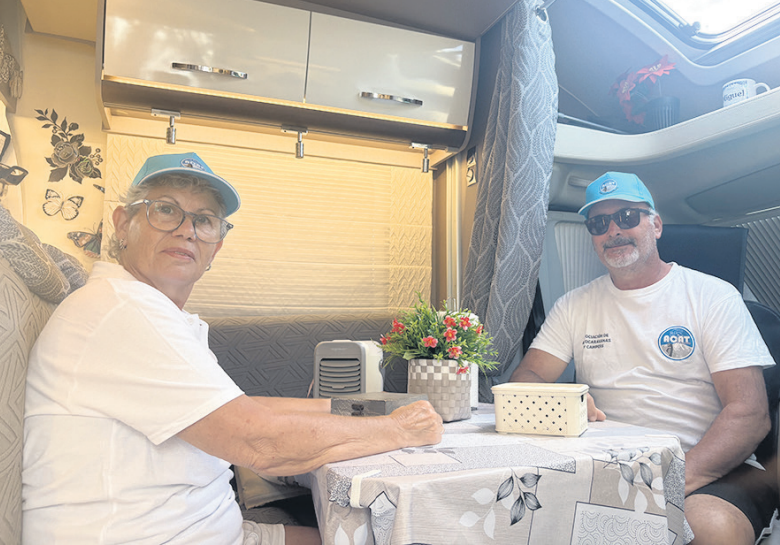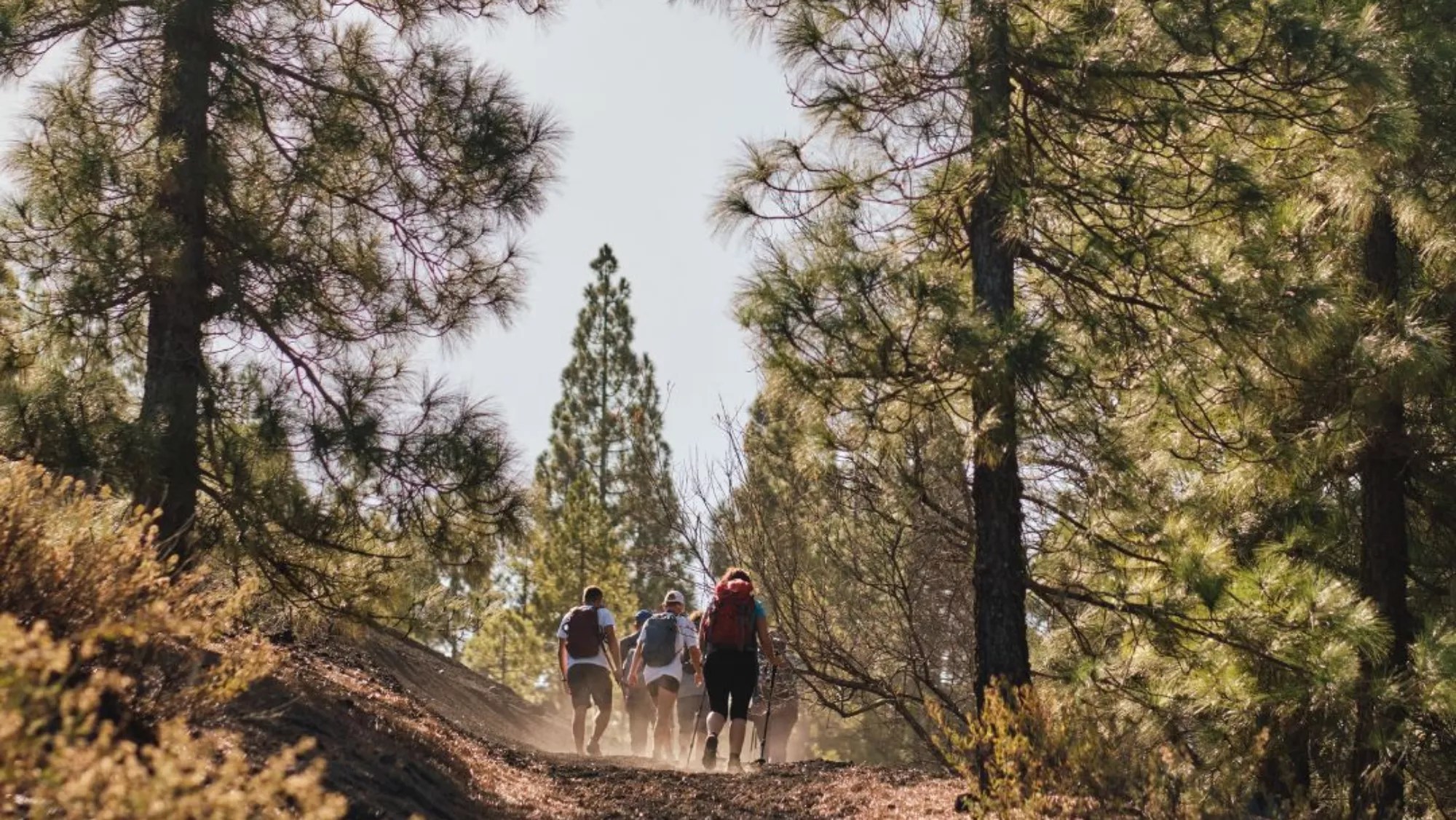A small section of yellow golf has been converted during the Holy Week period into a temporary hub for motorhomes. This area, temporarily allocated by the San Miguel de Abona Town Hall and overseen by the Canarian Association of Autocaravanas and Campers (ACAT), accommodated around 120 recreational vehicles. In February, this association, alongside others, organised several demonstrations across the islands to advocate for more lenient regulations, space, and restrictions for the sector.
Despite challenges surrounding space availability, motorhome enthusiasts have discovered a refuge in yellow golf. Each motorhome occupies a designated plot, allowing ample room for awnings, tables, and chairs. Access is managed via prior bookings made through their website.
“This orderliness and respect are seldom observed in other parts of Europe,” states Juan Martín Beltrán, the president of ACAT. The association implements quiet hours between 11 PM and 8 AM, fostering an environment of respect and calm. The area is equipped with facilities for the disposal of grey and black waste, as well as drinking water supply points. These amenities are essential for maintaining hygiene and environmental respect.
This form of recreation promotes engagement with the local economy. Beltrán highlights one of the primary methods used to encourage this practice among communities: asking participants to retain receipts from their purchases at local businesses. This approach allows for better assessment of the economic impact of the event in municipalities that have provided their spaces, offering tangible data that illustrates the effect on the local economy.


Claudina, a participant with over 30 years of experience in motorhoming, states, “This is a different way of experiencing life, of enjoying freedom, and connecting with others.” She notes that this lifestyle is particularly popular among retirees, and that at her age, “this is a wonderful recreational opportunity.”
Motorhoming in the Canary Islands encounters obstacles, such as limited designated areas and inadequate infrastructure. This group mobilised in February to advocate for the removal of restrictive signs, the establishment of appropriate parking, networks of clean-up points, and changes to land laws to facilitate the creation of campsite areas on rural land.
Distinguishing between need and leisure
Beltrán stresses the importance of differentiating those who choose this lifestyle for leisure from those who do so out of necessity: “They should not discriminate against us by limiting access. We are people who come, tidy up after ourselves, respect the environment, and leave.” In this regard, Beltrán describes the “days of coexistence”, as they label each event, as opportunities for people to interact and share experiences. Meanwhile, Mari opens the door of her motorhome to a local newspaper, showcasing a mobile home capable of accommodating six individuals, equipped with three cooking hobs, a dining table, and all essentials for independent living. “I came from La Gomera and experienced the pandemic while living in it without any issues,” she recounts. The decision to take the plunge was resolute: she relinquished a rental property and, alongside her husband, has spent four years residing in the motorhome. “I inherited a house, but otherwise, I would still be here,” she admits. For her, life on the move is not a concession but a chosen lifestyle.
















